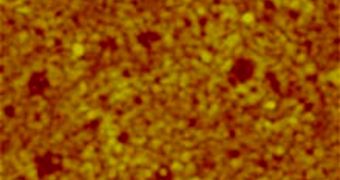Scientists working for General Motors announce the development of a very strong glue, that is about 10 times stickier than Velcro, and that can be made to come loose, and then reused, when heated. Other research teams have over the past few years attempted to perfect a number of gecko-inspired glues, but their efforts have turned out products that are a lot less efficient than the GM innovation. The polymer-based substance creates connections within itself in only a few minutes, after being initially heated. Two components, each featuring some of the new adhesive, could be made to stick together strongly in a short time, Technology Review reports.
The connection between the two polymers can be broken only by applying large amounts of force to it. However, if the two layers of adhesive are heated again, they easily break apart from each other, their creators say. According to preliminary test results, it would appear that the polymers can be heated and then separated twice, before the material loses about 30 percent of its sticking ability. Details of the work were published online in the February 2 issue of the ACS Publications' journal Langmuir.
According to GM polymer scientist Tao Xie, the leader of the investigation, the new material can be thought of as a special type of chemical Velcro. The study was conducted at the Research and Development Center, in Warren, Michigan. “Here the advantage is that the bond is almost as good as the liquid-based curable adhesive we're more familiar with,” Xie reveals. He adds that the innovation could lead to the creation of a new class of automobiles that are both cheaper and easier to customize. In fact, he believes, the materials could enable a high degree on interchangeability between the various components of cars, ranging from their bumpers to where the GPS systems and cup holders are located.
University of Sheffield reversible adhesives expert Mark Geoghegan believes that the new polymers could also be put to use in the electronics industry, for recycling computers, and other similar equipment. “Taking complicated structures apart for reuse at the end of life of the original device is not trivial if their original production involved welding,” the expert says. “Imagine a U2 tour, where sets are assembled and disassembled on a daily basis. It might be easier to use a high-strength reversible adhesive than to use bolts,” he says.

 14 DAY TRIAL //
14 DAY TRIAL //